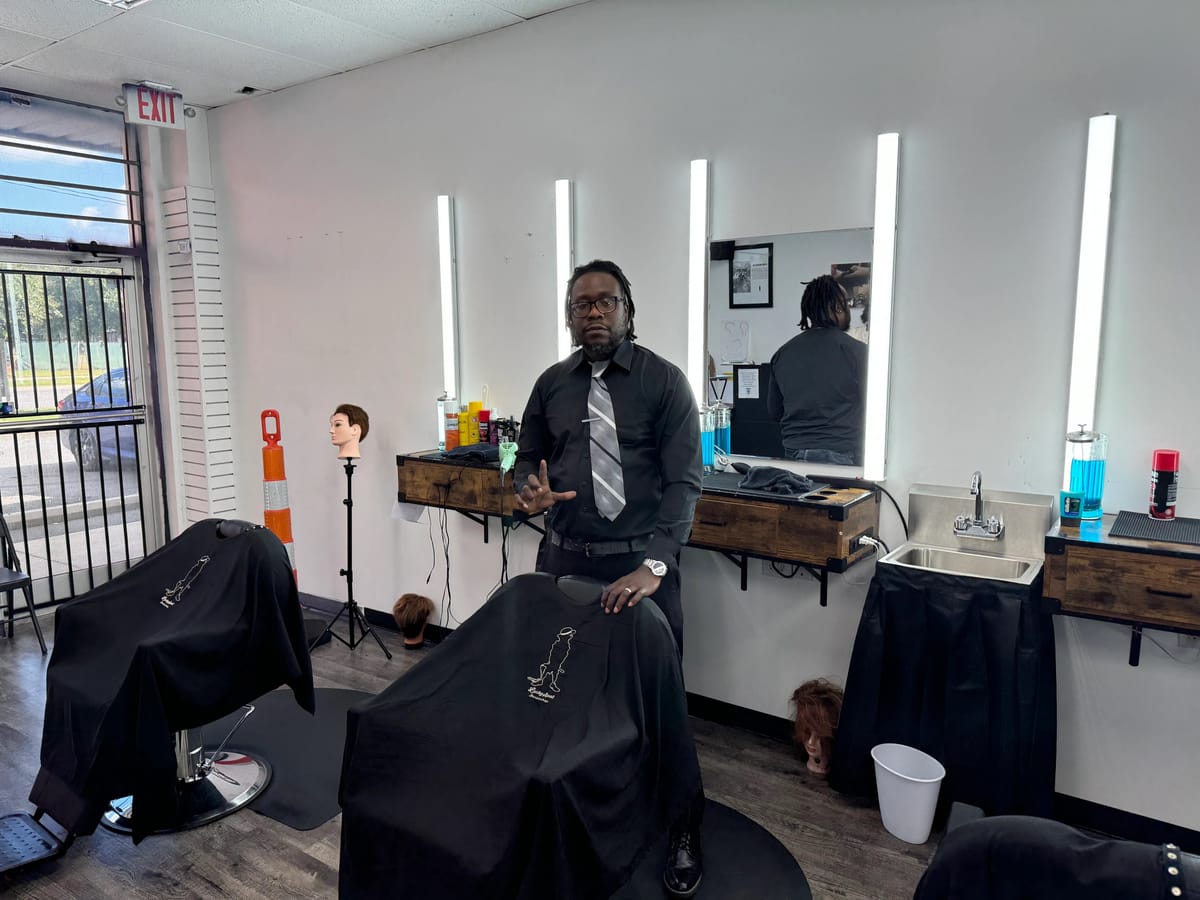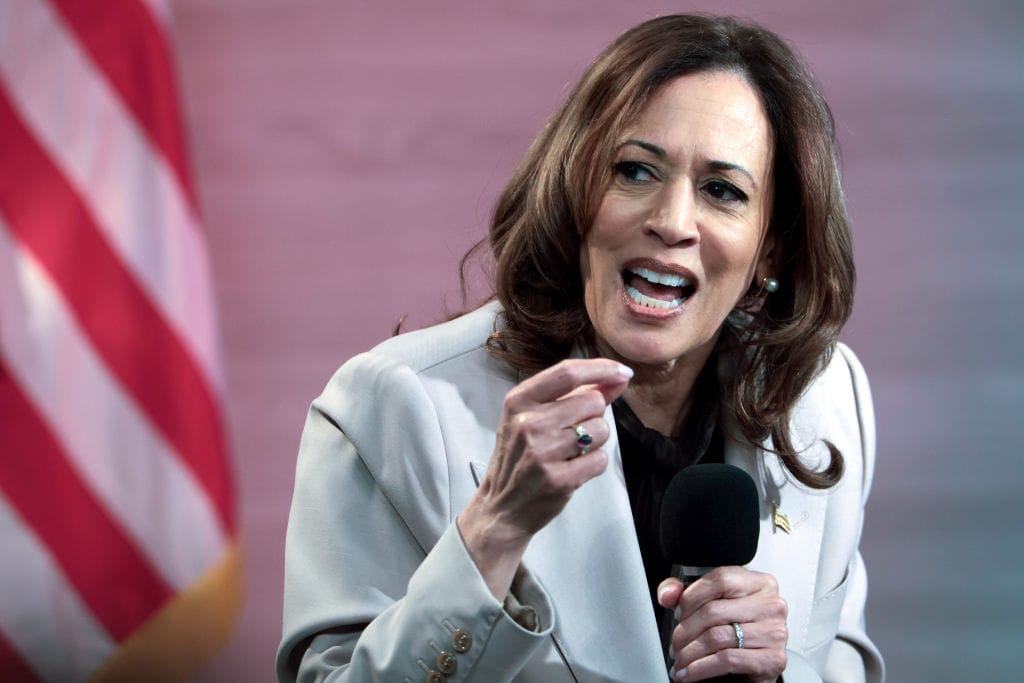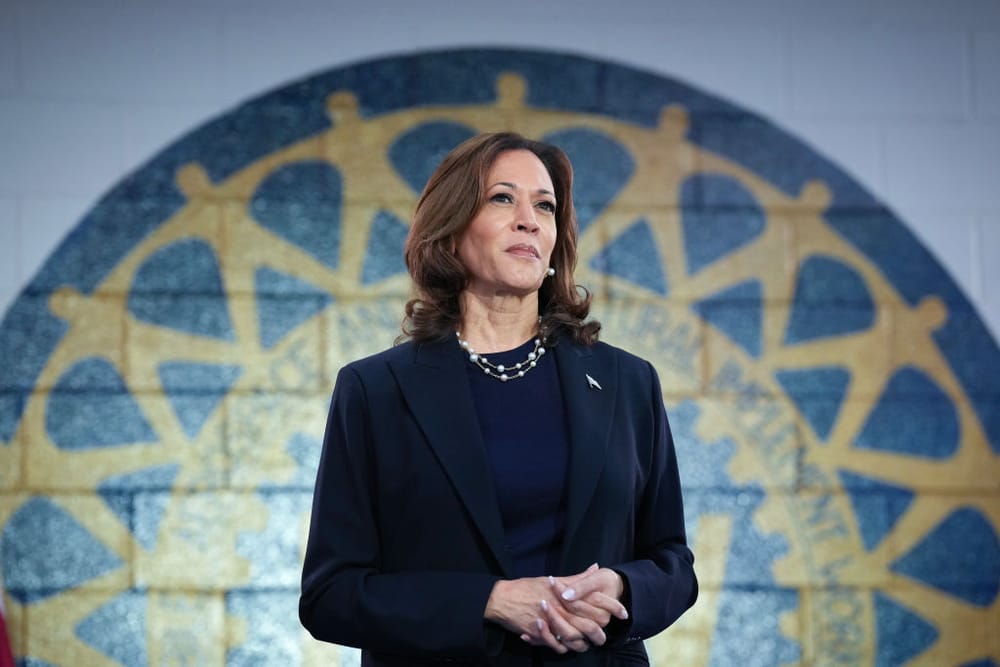What struck the newcomer to Fanta Citron, in Mvog-Ada, the ghetto neighborhood in Yaoundé, Cameroon, where I grew up, was that many women who were born there were most often single mothers. They and their children lived with their families. The fathers came and went.
When you encountered couples, there were often those formed by their brothers or by the new people who had arrived with their families from their village, in search of a better life in the capital.
The most surprising thing is that these single mothers were the rocks, raising their children with the strength of their resourcefulness and determination. But at the same time, if you told them that you had a magic wand, they would have asked you to make a man appear and marry them.
We children lived in the moment. But sometimes when we saw our fathers, we wondered why they were not with our mothers. I stopped asking myself this question because, each time I did, my mother would answer that my father’s family, who lived in the village, hundreds of kilometers away, hated her. She never gave more information. As for my father, I was so happy to see him, that I did not want to spoil these brief moments by asking him a question that would anger him, given the tensions between him and my mother.
The first time I visited my father’s village I was determined to understand why my paternal family “hated” my mother so much, to use her words. Two days before our return to Yaoundé, I approached my aunt Geneviève.
“Auntie, why don’t you like mother? “ I frankly asked.
Auntie Geneviève was speechless. She looked to see if anyone was coming out of the cocoa plantation that was next to the house. She adjusted her kabba, a traditional dress in central and west Africa.
“What kind of question is this?” she interjected, outraged.
We were talking in one of my paternal family’s dialects.
“I want to know because mom says she’s not with dad because you and everyone else here hate her,” I replied undeterred.
I sat down on the floor in front of her. Auntie Geneviève realized that I wasn’t going to let go.
“It’s not that we don’t like your mother,” she began, visibly embarrassed by this unusual and unexpected conversation. “Let’s just say that your mother, her family, and the people from the city are different from us.”
“I don’t understand,” I replied.
“Women from the city are not like us,” my aunt replied, clearly searching for the right words for a child my age. “They don’t fit with our values. They can’t adapt to our traditions.”
I was incredulous. Auntie Geneviève could see that I refused to believe her. The more subtle she was, the less I believed.
“Okay. Women from the city are very badly regarded here. We hear things. They are not good mothers. They are not respectable. They don’t take care of their households. They don’t know how to cook. They aren’t fit to marry. From what we hear, they destroy families. They are gravediggers of families and values. Having them as daughters-in-law is like allowing a wolf into a farmyard. That’s what we hear. We don’t want them and we told your father so. It was either your mother or his mother. He chose his mother. What would you have done?”
I understood that my father’s family had heard about the women from the city, and not in a good way. This bad reputation formed by hearsay had ruined my parents’ relationship before it had even started. That was not the only cause of them not being together of course, but in Cameroon and in many tribes, the blessing of families, and especially of the mother-in law, was, at the time, paramount in order to get married. The power of the hearsay is strong, I kept telling to myself every time I lamented why I couldn’t have both my parents as a unit.
I often thought of my mother, who was unaware that her relationship with my father had ended before it had even started, simply because my father’s family had heard what was said about the women from the city and believed it. All the efforts made by my mother to gain his family’s approval were in vain. They had judged her without even knowing her. The problem is that my mother never really understood this. In all the time I had known my mother, she and her sisters had been trying to figure out why my paternal side of the family had vetoed my parents’ relationship. To tell her or not to tell her, I made the choice not to. I didn’t want to ruin my new relationship with my paternal side of the family.
It wasn’t just my mother who didn’t know that her main obstacle to marriage was a reputation built on rumors. My aunts and other women in the neighborhood were also victims of it. To them, there was probably something they weren’t doing right.
It was the power of hearsay that came to mind in late October, as I listened to David Hardin Jr. in his barbershop, located in the West Village in Detroit, Michigan, seven days before Election Day. On this unusually warm and sunny day for this time of the year, the old school barber, 51, shared conversations he had with his clients about the presidential race between Vice President Kamala Harris and former President Donald Trump. His clientele consists of Black men of many generations, he said.
“I hear a lot of Trump negativity, rightfully so," Hardin told me. "It’s not like they dog on him, you know. It’s more like ‘how can America not have their eyes and ears open to what he’s saying. Kamala, I have heard a lot of mixed views on her, not because she’s a female, not because she’s Black. But because of her past political endeavors. The things she voted on, the things she spoke about, make us think twice about what we should be doing.”
Hardin was calm and direct. It took him time to summon his memory as I sat across from him. He sat on his station chair. It was around 11:45 am local time. When I arrived, he was alone. I noticed a large Harris/Waltz poster on one of the two windows at the entrance to his Heavy Weight Cuts barbershop. There was another sign which confirmed his political affiliation: Michigan for Biden/Harris was placed at the bottom of the same window.

Who better than barbers have harvested the thoughts and reflections of millions of Black men in this election campaign. They are the confessors because their workplaces have become safe sanctuaries for a large number of men, often in the Black community. In the last days of this consequential election, I wanted to know whether what Hardin’s customers were telling him matched what the polls have been showing, namely that a portion of Black men are hesitant to support Harris, which could guarantee Trump’s victory on November 5.
They talked about that commercial where she [Harris] was giving a transgender [person] in jail the right to change their sex,” Hardin said, trying to describe the TV ad, as he wasn’t sure that I had seen it since I am from out of state. “The rights of Black people, Black men in general, have been overlooked.
“For other communities to get their rights, that’s something that struck a nerve with a lot of people,” Hardin said, referring to many of his Black customers. “If they are already in jail, you know, their rights are limited. Why would you give them more than Black people have in general in their lives? That’s pretty much what I’ve heard from some of my customers. They talk about the transgender thing, you know, that kind of bothers them.”
Hardin says that most of his conversations with clients about the election in recent weeks have centered around this ad, which attacks the Vice President’s support for the transgender community, and in particular for gender affirming care. It has angered many, thus feeding their distrust and skepticism of Harris.
“Kamala supports taxpayer funded sex changes for prisoners,” says the ad, which continues to air on traditional networks here in Michigan as of time of this writing. I also saw the same ad multiple times on TV when I was in North Carolina and Georgia in early October.
Harris is then heard saying: “Surgery for prisoners. Every transgender inmate in the prison system would have access.”
The deep and sinister voice then resumes with a dark tone: “It’s hard to believe, but it’s true, even the liberal media was shocked Kamala supports taxpayer funded sex changes for prisoners and illegal aliens.”
Harris’ voice is heard again saying: “Every transgender inmate would have access.”
The voice then declares: “Kamala is for they/them. President Trump is for you.”
The video is 30 seconds long.
The LGBTQ media advocacy group GLAAD recently said that, based on a polling by Ground Media, while this and other anti-transgender ads run by the Trump campaign have contributed to reduce the acceptance of trans people, they have had “no statistically significant shift in voter choice, mobilization or likelihood to vote.”
Asked about the issue in her one and only interview so far on Fox News since she became a candidate, Harris said that she would follow the law, which requires the government to provide health care to the people it detains. “I will follow the law, and it’s a law that Donald Trump actually followed.” Harris said.
According to the New York Times, under Trump, the Bureau of Prisons provided gender-affirming treatments, including hormone therapy, for a small group of inmates who requested it during the billionaire’s presidency.
“It’s like giving them an option in jail, to be excused from whatever crime they committed,” some of Hardin’s customers have complained to him. “We just want equal opportunity, that’s all. The same rights.”
The transgender ad has reinforced to these clients, for better or worse, that they are not a priority for Harris and for the Democrats as a whole, the barber said. For many Black men, the ad reinforces the perception that when the government wants to address a problem to help a certain group they take the necessary steps to do so. The Black community is always left out. The ad has managed to define Harris for Hardin’s clients, in the same way that rumors and cliches defined the women from the city in my childhood. How could one take control back?
Michigan is one of the swing states with a large Black population which I am touring in this election cycle, to capture the voices of Black male voters, primarily in barbershops. According to the polls, a portion of Black men, one of the most loyal Democratic voting blocs, appears to support Republican candidate Donald Trump.

Michigan and its 15 electoral college votes are, along with the states of Wisconsin and Pennsylvania, the path to victory for the Vice President. Black voters make up about 13% of the electorate, and in 2020, about 92% of them voted for Joe Biden, according to exit polls. An average of the current polls shows that, while Harris is still winning the Black vote, the support for her in the state is down about 20 points from 2020.
However, this could be a recurring pattern. Two years ago, during the midterms, the polls predicted a big drop in Black support for Democrats, but the day after the vote, it was a much smaller decline than the polls predicted.
Hardin said “80% to 82%” of his Black clients will vote in the presidential election. He was surprised to hear most of his affluent customers saying “I don’t know what I’m going to do as far as voting,” or “I might vote for Trump.”
“They are really trying to weigh who might get in, how it could affect their business and stuff like that. And I will point that out too. Most of them are business people,” he said.
Some of those clients are thinking of writing a name in, like former President Barack Obama, he said.
“Even though I’m a little conflicted on that, I kind of understand you like trying to balance things out, but at the same time, if you don’t vote for one or the other, that’s still a no vote.”
Hardin is passionate. He opened his barbershop in 2000. Since 2008, with Barack Obama’s candidacy for the White House, it has become his neighborhood. Being “from the street but not in the street” has burnished his credentials. This has allowed him to confront some of his clients during this election cycle.
“I have a lot of people saying they are not going to vote for her [Harris], but I am slowly trying to get them to come around,” he said.
“How are you convincing them?” I asked him.
“First thing, I ask them why you’re not going to vote? And depending on what their response is, I have several different ways I can go,” he answered.
His main weapon is guilt, by reminding them that people fought hard, some even lost their lives, for Black folks to have the rights to vote. When this doesn’t work, he turns the discussion to local elections, as they affect the neighborhood. And if that can’t sway the person, he tells them that by not voting, they give the power to someone they dislike to do as they please.
“Does it work?” I intervened.
“Sometimes it does. But, overall, they say I will think about it; I will sit on it,” Hardin said. “But young Black men are nonchalant. They usually say ‘yeah, whatever Dave; Okay Dave, I hear you’ and keep moving.”
Another topic that has come up most often in recent months and in these final days of the campaign in conversations in the barbershop: Harris’ gender, Hardin told me.
“I ain’t letting a woman run my house,” many of his clients have said to him, referring to Harris. “It’s not just my Black clients who told me that. White men told me the same. It’s a man thing,” Hardin, a father of three adult boys, 25, 23 and 22, said.
He dives into the clichés and stereotypes himself:
“Women are emotional, you know, it’s like fact,” he repeated as if he was trying to convince himself that he was not making a controversial statement. “But the presidency is not somebody who makes decisions alone. Trump didn’t do it. Obama didn’t do it. Clinton didn’t do it. So, it’s not like all women are going to get president jobs, they got to be CEOs of companies; it’s not like all men are going to start cooking, you know.”
Faced with my silence, which he seemed to have interpreted as criticism and disapproval, he thought it appropriate to add:
“I don’t understand their [his clients] way of thinking about a woman being president even though I do kind of understand the emotional part because every man that’s been in a relationship understands women are emotional, they think emotionally, you know. But in this instance, it’s going to be dialed back, because she can’t just do what she wants.”
Like what hearsay did to the women in the city, including my own mother in my childhood, stereotypes and a political ad seem to have damaged the perception some Black men have for Harris, even for some who will vote for her.
“If you were running against Trump, we’d be voting for you, you know. That’s pretty much what I hear [from my clients],” Hardin said. “She’s the lesser of two evils. They just don’t want Trump. It’s strictly a no-Trump thing. If it was another White person running against Trump, they probably would vote for that White person.”
Unlike my mother and the women from Fanta Citron decades ago, Harris seems to have received the message. She seems to have read the room. For the last days of this election cycle, she has pivoted to make the race about Trump.
It might just work.
This post originally appeared on Medium and is edited and republished with author's permission. Read more of Luc Olinga's work on Medium.

